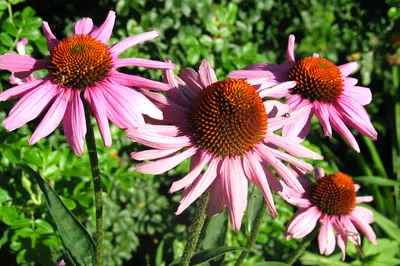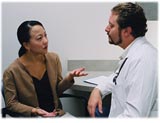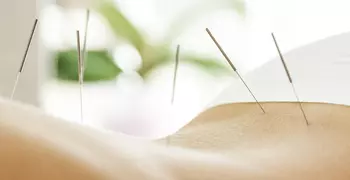Botanical Medicine

Find a botanical specialist
Sometimes, with all there is to learn about botanicals, it just seems important to get some qualified help. But where?
A good place to start is your regular healthcare provider. Tell your provider what you are considering and share what you have discovered from your research. Explain why you are interested in using botanicals. You should expect your health provider to be respectful, to listen well, to explain some of the factors you should consider, and to partner with you on treatment decisions. Your provider's input is invaluable because he or she knows your health and the drugs you are taking.
Some healthcare providers have taken advanced courses on botanical medicines and will feel quite comfortable making specific suggestions for botanical use. Others may be able to refer you to another provider with specific expertise. This might be a licensed naturopath or trained herbalist.
Other times, you might find that your healthcare provider does not know a lot about botanical medicines-either because of bias against them, lack of interest, or lack of time to learn about them. If you are interested in using botanicals and your healthcare provider is open to learning about them, you can help by pointing out resources, such as this website, where they can learn more. If they are completely unwilling to consider or discuss the use of botanicals and it is something that you want to pursue, you may want to seek expert advice elsewhere.
What is a naturopath?
 Naturopathic Medicine marries traditional natural therapeutics with modern scientific medical diagnoses and western medical standards of care.
Naturopathic Medicine marries traditional natural therapeutics with modern scientific medical diagnoses and western medical standards of care.
A naturopath or naturopathic physician is someone who has a Naturopathic Doctorate (ND) from one of the fully accredited naturopathic universities in North America. In many ways the ND degree compares to that of medical school. For example, Bastyr University requires a total of 4,342 curriculum hours for an ND, which is comparable to that required for an MD at most medical schools.
In some states, naturopaths are licensed, which generally means that they have passed a two-part national exam, the Naturopathic Physicians Licensing Examinations (NPLEX).
What is an herbalist?
According to the American Herbalist Guild, herbalists are people who dedicate their lives to working with medicinal plants. Those who specialize in the therapeutic use of plants may be medical or clinical herbalists, traditional herbalists, midwives, and naturopathic, Ayurvedic or Traditional Chinese Medicine physicians.
Medical or Clinical Herbalists
Most medical or clinical herbalists have studied the traditional uses of herbs, the basic medical sciences of biochemistry, nutrition and anatomy as well as diagnosis and prescription. The most common titles given to medical herbalists in the U.S. include: RH AHG (Registered Herbalist, American Herbalists Guild); MCPP (Member, College of Practitioners of Phytotherapy); FNIMH, (Fellow, National Institute of Medical Herbalists); and MNIMH (Member, National Institute of Medical Herbalists).
Traditional Chinese Medicine Practitioners
Traditional Chinese Medicine practitioners have extensive training in theory, practice, herbal therapy and acupuncture. Their titles may include L.Ac. (Licensed Acupuncturist); OMD (Doctor of Oriental Medicine); or Dip. C.H. (NCCA) (Diplomat of Chinese Herbology from the National Commission for the Certification of Acupuncturists).
Traditional Ayurvedic Medicine Practitioners
Ayurvedic practitioners go through extensive training that can last as long as 12 years. Some use the title M.D. (Ayur.), while those who have passed the accreditation process of the American Ayurvedic Association can use the title D.Av. (Diplomate in Ayurvedic Health Sciences).
How can I find a qualified herbalist or naturopath?
Ask for recommendations from people you trust, including your primary provider. Ask at the local health food store for referrals. Check out the American Herbalist Guild, which is a nationwide membership organization for professional naturopaths and herbalists or the American Association of Naturopathic Physicians, which has a database of NDs that you can search.
Once you have found a provider, ask about his or her education and experience. Explain what you are looking for. Determine if you are comfortable with the qualifications and feel that the provider can provide the services you are looking for.


